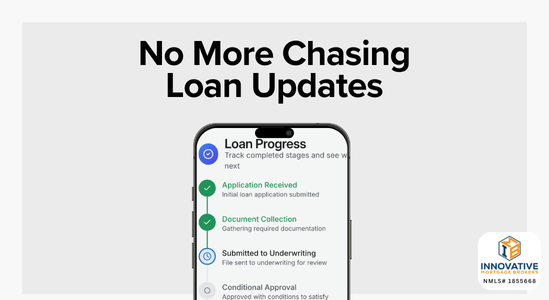Mortgage rate volatility, oil shocks, and why execution matters more than quotes When a war…
Education as Employment History: Your Key to Mortgage Approval
What You Need to Know About Schooling and Mortgage Eligibility
When applying for a mortgage, one of the key factors lenders evaluate is your employment history. Most mortgage programs require at least two years of consistent employment to consider your income stable enough to handle mortgage payments. But what happens if you’ve spent much of your time in school? Whether you’ve just completed a degree or received training in a specialized field, your educational background could work in your favor when applying for a home loan. This article explores how different mortgage agencies, including Fannie Mae, Freddie Mac, FHA, VA, and USDA, evaluate schooling as part of your employment history and what that means for borrowers looking to qualify for a mortgage.
Why Employment History Matters in Mortgage Lending
Lenders want to ensure that borrowers have the ability to make consistent payments on their loans, which is why they require a stable employment history. A continuous employment record demonstrates that a borrower has a reliable source of income and can handle the financial responsibilities of owning a home. Typically, lenders look for at least two years of employment history in the same or related field. However, not everyone has a straightforward employment path—particularly those who have spent years in school or in specialized training programs.
The good news is that many lenders recognize education and specialized training as valuable experience. Instead of disqualifying individuals who have been in school, many loan programs allow schooling to be considered part of your employment history, provided that your current job is related to the education you received. Let’s break down how each major loan agency approaches this issue.
Fannie Mae: Flexibility with Documentation
Fannie Mae’s guidelines provide flexibility when it comes to considering schooling as part of your employment history. Lenders have the option to use school transcripts to support employment histories shorter than two years. This is particularly beneficial for recent graduates who have just entered the workforce. Even if you’ve been working for less than two years, as long as your current employment is stable and related to your education, you may still qualify for a Fannie Mae loan.
Additionally, Fannie Mae allows lenders to use Day 1 Certainty, a verification tool that helps validate your income automatically. If your income is stable and can be validated, it may eliminate the need for a full two years of employment history. However, borrowers with fluctuating income—such as those in commission-based roles or self-employed—will need at least 12 months of income history for the lender to consider their income reliable.
High School as the previous history: Fannie Mae does not address.
Freddie Mac: Ensuring Stability
Freddie Mac, like Fannie Mae, allows education to be counted as part of your employment history if your current job is in line with the degree or training you completed. However, Freddie Mac places greater emphasis on proving income stability. If you’ve been employed for less than two years, your lender will need to demonstrate that your current job is secure and that you have the ability to maintain a stable income moving forward.
Freddie Mac also allows for the use of compensating factors—such as a high credit score or significant cash reserves—that could help offset a short employment history. However, your lender will still need to ensure that your current employment is related to your schooling to count education toward your employment history.
Fluctuating income as part of the history: When the Borrower employed income is derived from fluctuating hourly employment earnings, the Borrower must have at least a 12-month history of employment to average.
High School as the previous history: Freddie Mac does not address this. However, they appear to take a more rigid stance than Fannie Mae on making sure the income is stable.
FHA Loans: Ideal for Recent Graduates
The Federal Housing Administration (FHA) is one of the most accommodating agencies when it comes to using education as part of your employment history. FHA guidelines explicitly allow borrowers to use schooling or military service as part of the required two-year employment history. This is a significant advantage for recent graduates, as long as they are now employed in a field related to their education or training.
One of the key benefits of FHA loans is that they are designed for borrowers with lower credit scores or those with less cash on hand for a down payment. As a result, the FHA is more flexible with employment history requirements than conventional loans. However, if you have gaps in your employment history exceeding six months in the recent two years, education may not be sufficient to meet the two-year requirement.
Fluctuating income as part of the history: For employees who are paid hourly and whose hours vary, the Lender must use the average of the income over the previous 2 years.
High School as the previous history: FHA does not address. It is up to the underwriter to determine if work history plus education can be evaluated as a stable history. High School is not specialized, so it will be a judgment call from the underwriter.
VA Loans: Military Service and Schooling
For veterans and active-duty military members, VA loans offer competitive interest rates and no down payment requirements. When it comes to considering schooling as part of employment history, VA guidelines are also relatively flexible. If a borrower’s education or military training directly relates to their current job, it can be used to meet the employment history requirements.
However, VA loans do require that borrowers have been in their current position for at least 12 months to consider their income stable. If you recently completed school or military training, your lender will assess whether your education provides you with the skills and qualifications needed for your current role. As long as your job is stable and related to your education, you should be able to use schooling as part of your employment history for a VA loan.
Fluctuating income as part of the history: Generally, such income cannot be considered stable and reliable unless it has continued and is verified for 2 years from part-time jobs.
Note: If the hours fluctuate, this may be considered a part-time job. Consult with your loan officer to determine.
High School as the previous history: VA does not address this; however, if employed less than 12 months, a high school education will likely not be related enough to determine stability based on the guidance above and their hard stance on 12 months of employment.
USDA Loans: Counting Specialized Training
The United States Department of Agriculture (USDA) offers home loans for borrowers in rural and suburban areas, with a focus on helping low- to moderate-income families achieve homeownership. USDA guidelines allow for education, including college or technical school, to be counted as part of your employment history. However, USDA loans also require that borrowers have completed a degree or certification that directly relates to their current job.
While this is beneficial for borrowers who have just completed a specialized training program or degree, high school diplomas without further career-based certifications typically do not meet the employment history requirement. For USDA loans, it’s crucial that your education aligns with your current role to count toward the two-year employment history requirement.
The Importance of Documentation
Regardless of the loan program, documentation is key to ensuring that your schooling is counted as part of your employment history. Lenders will typically request school transcripts, certifications, or other documentation that proves you have completed an educational or training program. Additionally, they will look for evidence that your current job is directly related to your education, as this helps demonstrate that your income is stable.
If you’re unsure whether your schooling will count toward your employment history, it’s important to consult with a knowledgeable mortgage broker. At Innovative Mortgage Brokers, we work closely with borrowers in Pennsylvania (PA) and Florida (FL) to ensure that they meet the employment history requirements for their desired loan program. We can help you gather the necessary documentation and present a strong case to the lender.
What If Traditional Loans Aren’t an Option?
In some cases, self-employed borrowers or those with unique income situations may not qualify for traditional lending products. At Innovative Mortgage Brokers, we understand that traditional employment histories don’t work for everyone, which is why we offer a range of Non-QM (Non-Qualified Mortgage) products to meet your needs.
If you don’t qualify for a conventional loan, options such as bank statement loans, asset utilization or depletion loans, and DSCR (Debt Service Coverage Ratio) loans for investment properties may be available to you. These programs provide flexibility for borrowers with non-traditional income sources, allowing you to qualify for a mortgage based on your actual cash flow or assets rather than a strict two-year employment history.
Final Thoughts
If you’re self-employed, recently graduated, or have a unique income situation, securing a mortgage may feel challenging. However, many loan programs, including those offered by Fannie Mae, Freddie Mac, FHA, VA, and USDA, allow schooling to count as part of your employment history. With the right documentation and a strong application, you can still qualify for a mortgage—even if your employment history is less than two years.
At Innovative Mortgage Brokers, we specialize in helping borrowers navigate the mortgage process in Pennsylvania (PA) and Florida (FL). Whether you’re a first-time homebuyer, looking to upgrade, refinance, or invest in property, we’re here to guide you every step of the way. With access to a variety of loan products and our deep industry expertise, we’ll help you find the right solution for your financial situation. Let us help make your homeownership dreams a reality!





